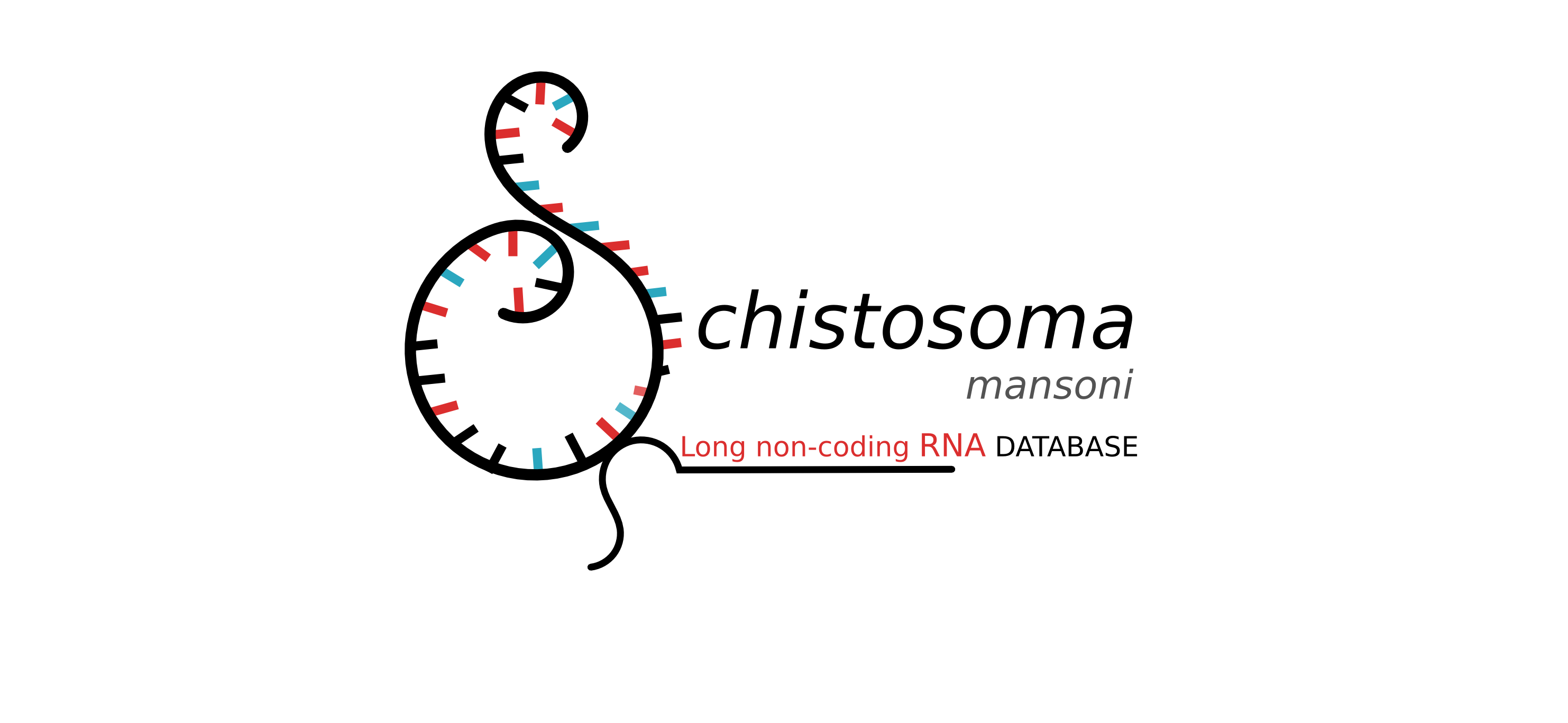Schistosoma mansoni lncRNAs Database

Datasets Used
lncRNAs Database
Fifteen RNA-Seq libraries were used in the SmLINCs-Smps expression correlation analyses as described in our previous work (Vasconcelos, E.J.R., daSilva, L.F., Pires, D.S., et al. (2017) The Schistosoma mansoni genome encodes thousands of long non-coding RNAs predicted to be functional at different parasite life-cycle stages. Sci Rep, 7, 10508.) and represent the five life cycle stages: biological triplicates for cercariae (ERR022872, ERR022877 and ERR022878), somula 3h (ERR022874, ERR022876 and ERR022879), somula 24h (ERR022880, ERR022881 and ERR022882), male (SRR5170192, SRR5170191 and SRR5170190) and female (SRR5170180, SRR5170179 and SRR5170178) adults. The three former stages are from Protasio, A.V., Tsai, I.J., Babbage, A., et al. (2012) A systematically improved high quality genome and transcriptome of the human blood fluke Schistosoma mansoni. PLoS Negl Trop Dis, 6, e1455, while adult worm samples are from our group (NCBI BioProject ID: PRJNA361136).
scRNA-seq Clusters Atlas
The raw reads from the S. mansoni single-cell RNA-seq obtained by Wendt, G., Zhao, L., Chen, R., Liu, C., O'donoghue, A.J., Caffrey, C.R., Reese, M.L., and Collins, J.J., 3rd (2020). A single-cell RNA-seq atlas of Schistosoma mansoni identifies a key regulator of blood feeding. Science 369, 1644-1649. doi: 10.1126/science.abb7709accessed at NCBI SRA project PRJNA611777. The genome assembly Smansoni_v7 from WormBase by Howe et al., (2017) WormBase ParaSite - a comprehensive resource for helminth genomics. Molecular and biochemical parasitology, 215, 2-10. doi:10.1016/j.molbiopara.2016.11.005. A merged gene annotation file containing the protein-coding genes, and pseudogenes from Schistosoma mansoni WormBase GTF gene annotation version 16, (Howe et al., 2017), and the lncRNA genes GTF from Maciel et al., (2019) Weighted gene co-expression analyses point to long non-coding RNA hub genes at different Schistosoma mansoni life-cycle stages. Front. Genet. 10:823. doi: 10.3389/fgene.2019.00823.